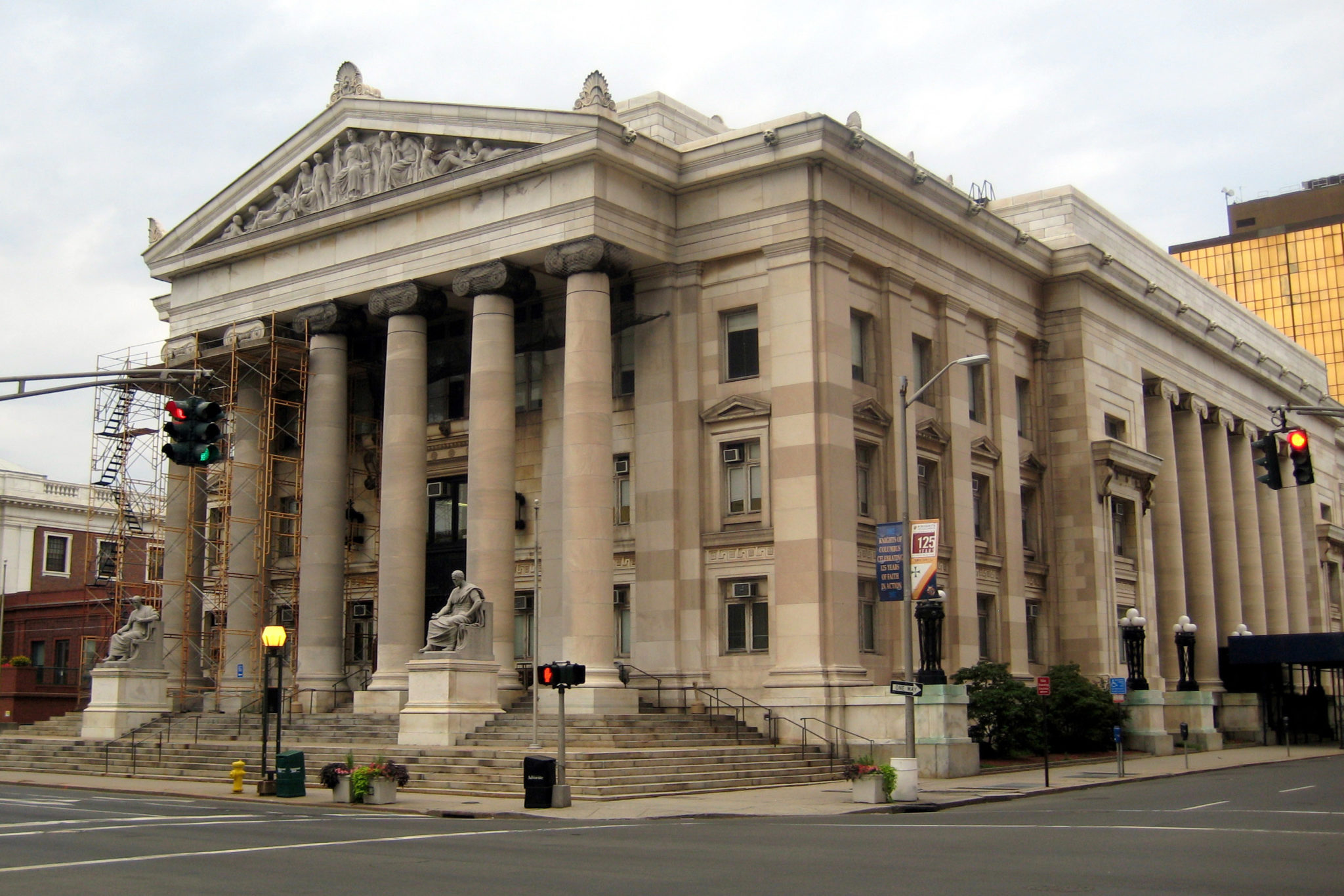
WikimediaCommons
While lawmakers in Connecticut have continued to debate transportation into the final days of 2019, they have seen little success to-date in finding a solution.
Last Tuesday, Gov. Ned Lamont hosted a meeting with the state’s top legislative leaders — including State Senate Minority Leader Len Fasano ’81, R-North Haven, State Senate President Pro Tempore Martin Looney, D-New Haven and Speaker of the House Joe Aresimowicz, D-Southington.
Along with representatives from the Department of Transportation, Lamont and the legislators discussed the details of each transportation plan that has been presented so far — from the governor, Senate Republicans and House Democrats — to try to find common ground for a solution. Despite the conciliatory aims of the meeting, drama and finger-pointing immediately followed its conclusion.
“The comments made by legislative Democrats and Gov. Lamont following today’s meeting were nothing but political talking points defending their insatiable desire to tax people more,” Fasano said in a press release after the meeting. “They want tolls, they want to borrow more, they want more tax revenue from Connecticut residents — on top of their new taxes on plastic bags and groceries. They do not want to work with Republicans to do what is truly best for our state and its residents. But if that’s what they want, they have the majority. Put it up for a vote. Democrats, go for it.”
As has been the case since early 2019, the crux of the disagreement between Lamont and Fasano, who represents the viewpoint of Nutmeg State Republicans more broadly, has been about tolls. Both sides seemingly agree on the need for a massive investment in transportation infrastructure. Lamont proposed spending $21 billion in ten years whereas Fasano’s plan aims for an only slightly more conservative $18 billion. Still, they have not been able to agree on a mechanism to pay for the expensive plan. Funding is critical in Connecticut, which has struggled to balance its budget in recent years amid rising costs and limited sources of revenue.
Since assuming office in January, Lamont has consistently called for tolls on Connecticut’s highways. He initially proposed 53 toll-gantries during the 2019 regular legislative session but is now asking for 14. Senate Republicans, on the other hand, suggested borrowing substantially from the state’s rainy day fund. That idea is broadly unpopular among Democrats, who hold the majority in both chambers in Hartford.
Lamont reacted quickly to Fasano’s comments, releasing a statement of his own criticizing the Senate minority leader.
“Senator Fasano must be talking about a completely different meeting and a totally different plan,” Lamont’s office wrote in a press release. “Today, Governor Lamont asked legislative leaders from both sides of the aisle to come together and discuss for nearly two hours how to grothe state’s economy and fix its broken transportation system. It’s unfortunate that Senator Fasano has decided to walk away from the discussion and finding a solution simply because his colleagues rejected his plan to raid $1.5 billion from the state’s budget reserves, risking the state’s fiscal future and leaving hundreds of thousands of Connecticut families at risk in the event of an economic downturn.”
Despite the public finger-pointing and criticizing last Tuesday, Lamont spokesperson Rob Blanchard told the News that the governor appreciated all the legislative leaders who came to the meeting to try to work out a deal. Blanchard also highlighted Lamont’s willingness to compromise, including on the number of tolls, stressing that Republicans would also need to compromise to make a bipartisan solution possible.
Yesterday, Lamont sent a letter to all of Connecticut’s legislative leaders, including Fasano, outlining his priorities for a special session that is likely to be called the week of Dec. 16. The letter presented four issues, with tolls at the top of the list. However, Lamont chose not to provide any details about a potential updated transportation plan in the letter, saying his staff would be “providing [lawmakers] with the updated plan and financial” in the near future. The governor also acknowledged the difficulty of the tight timeline, but argued that each of the four topics “require resolution” before 2019 ends.
Fasano reacted quickly, criticizing Lamont for his lack of transparency on his transportation plan and doubting the feasibility of voting on a substantial bill in a couple weeks.
“If the governor wants votes, we need answers and transparency … the public still has not been shown any details about the new House Democrat [and] Gov. Lamont combined tolling proposal.” Fasano said. The governor needs to release his … new tolling plan in its entirety and he needs to do it today.”
Lamont responded to Fasano’s statement on Wednesday and said that the senator has been substantially involved in the process and that he “must hold a different definition of bipartisanship.”
As Lamont and Fasano have engaged in highly-publicized confrontations, other lawmakers in Hartford have remained engaged, waiting for a bill on transportation to come up for a vote. Most Republicans, including House Minority Leader Themis Klarides, R-Derby, are opposed to any transportation plan involving tolls.
Democrats’ positions on the issue have been more variable. Last month, Senate Democrats, led by Looney, publicly announced their opposition to tolls as proposed by Lamont with 14 toll-gantry locations. But House Democrats are expected to release a joint plan with Lamont in the coming days that may include tolls.
In a statement to the News, House Majority Leader Matt Ritter, D-Hartford, argued for tolling just trucks, since they damage roads more than cars.
“Everyone under the Capitol dome believes that we must invest in transportation infrastructure. How we pay for it is the hard part,” Ritter said. “Trucks do 80 percent of the damage to our roads; they should pay their fair share. Truck-only tolls would ensure that we have a stable revenue stream to secure low-interest federal financing to fund infrastructure improvements.”
Connecticut’s 2020 regular legislative session will begin Feb. 5 and end May 6.
Emmett Shell | emmett.shell@yale.edu







